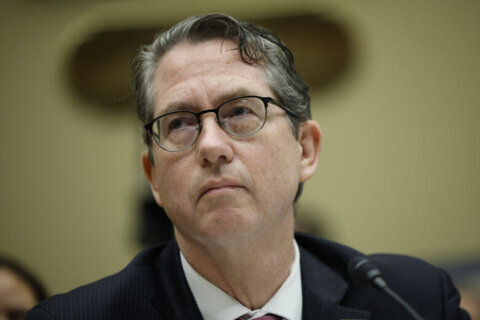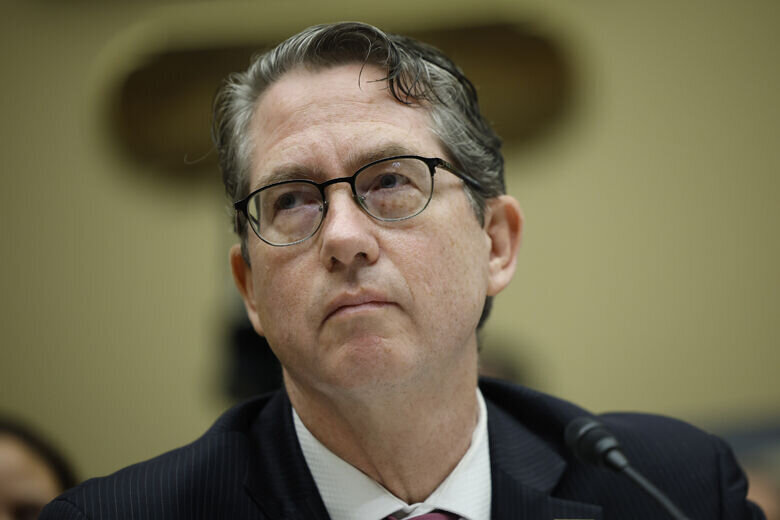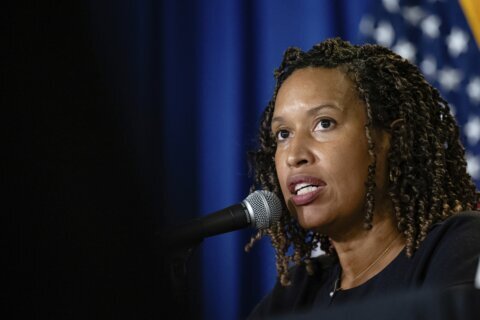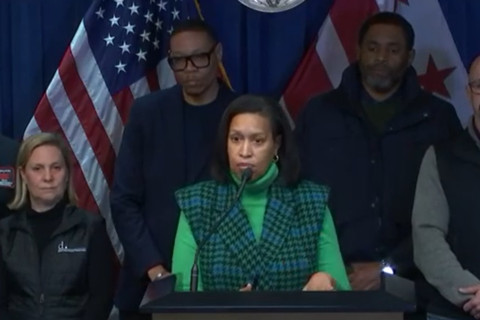
As a new year approaches, the District is set to end 2023 with a 39% increase in violent crime — and the numbers, according to D.C. police, would include the highest number of homicides the city has seen in 20 years.
A total of 199 homicides took place in D.C. in 2022; as of December 28 of this year, the number of homicides stood at 271, according to the D.C. police department’s online crime database.
“No one wants to see the year-end numbers be up,” D.C. City Administrator Kevin Donahue said. “We all strive and work really hard for the numbers to improve.”
A ‘stubborn’ increase
Donahue said gun crime has been “stubborn,” as the city also saw a rise in the number of robberies during which a gun was used.
Robberies in 2023 are up 68% from the previous year. A total of 6,788 robberies were reported this year.
“The increase we’ve seen is, in my view, part of a long-term strain on the whole environment,” Donahue said.
He believes that strain includes fewer police officers in the city compared to 10 years ago, as well as the strain COVID-19 has had on the courts.
“It’s going to take them a while to catch up,” he said. “That has implications, because cases can get stale.”
Donahue also said there are instances of people stuck in the D.C. jail for years, awaiting trial.
Sex abuse and assault with a dangerous weapon cases, on the other hand, did not see dramatic increases. Both saw a three percent or less increase in 2023.
Looking toward solutions
Donahue said that in the new year, more work to connect all the key players in combating crime on the local, regional and federal level will be done. He said this includes the recent opening of the city’s Real-Time Crime Center, where those parties work together to monitor and respond to crimes as they happen.
He described it as “collaboration and data sharing that’s instantaneous, happening in real time, which folks on the ground, police officers in D.C. and other jurisdictions can take really quick action on.”
Earlier this year, D.C. Mayor Muriel Bowser ordered a review of both short- and long-term crime-fighting initiatives and the impact those have had in the city.
“We certainly prefer programs … that we know should have shown results over the past few years,” Donahue said. “We look to be able to expand on what we know has worked, but we’re still midway through that process.”
The result of the review, he said, will be evident in mid-March, when Mayor Muriel Bowser unveils her proposed budget for the upcoming fiscal year.
Donahue said there is also a legislative component to fighting crime, which includes legislation proposed by the mayor that would allow the police chief to declare drug-free zones, which would potentially curb loitering in those areas. It also would create criminal penalties for organized retail theft, and make it illegal to wear a mask while committing a crime.
Several D.C. council members have also proposed legislation aimed at combating the surge in violent crime.
Donahue said the city will focus on a two-pronged approach to address the significant rise in gun violence. He said one priority is better understanding and addressing issues facing teens who are committing crimes, which he said in many cases includes experiencing trauma in life.
“We have to deal with the long-term underlying cause, and at the same time, deal with some immediate issues of accountability and supervision,” he said.
Accountability and support — for teens and parents
He said accountability in the form of jail time, as well as focused rehabilitation for teens in jail needs to be priorities. In some cases, he said, arrests have “backfired” when it comes to discouraging other young people from committing crimes.
“They see (no) accountability for a young person getting arrested … getting prosecuted for a carjacking, (to stop) them from carrying out another carjacking,” he said.
Donahue said focus needs to be put on what happens to teens after a first arrest, since he said many young people committing violent crimes turn out to be repeat offenders.
“What every victim wants to know (is) that the consequence of that arrest leads to fewer victims, and we need a system that does a better job of doing that,” he said.
He also said there is general agreement in the notion that parents should be held accountable for what their children do — but that putting a system in place is complicated.
“Parents have to be held accountable,” Donahue said. “But we also have to make sure we provide the right support for families and parents who are trying to do the right thing.”









